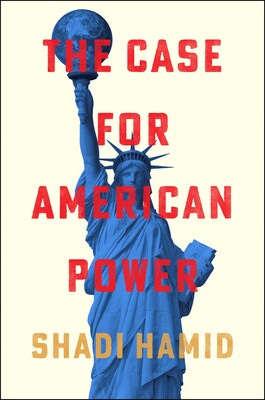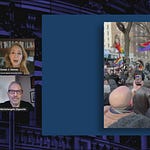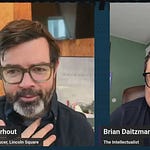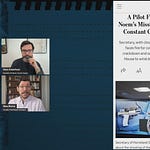"Being a democracy means that we can renew ourselves. We can change if we're getting things wrong."
In his new book, The Case for American Power, political scientist and Washington Post columnist Dr. Shadi Hamid makes his case for patriotism. But rather than whitewashing our history, he argues, we have to confront our past mistakes and work toward building a better future.
"To love a country means that we grapple with its weaknesses,” he tells Lincoln Square Executive Editor Susan J. Demas. “… Let's atone for our sins. Let's be self-critical about our own record in the past. And let's try to improve upon that."
The book comes out in November and you can read more about it here.
Hamid writes about being Muslim in a post-9/11 America and opposing the Iraq War. But while he still sees America's flaws clearly, he's come to a point of "reluctantly embracing America's global role." He’s been shaped by the experience of his parents, who are Egyptian and survived living under an authoritarian regime. That helped him appreciate the ideals of freedom and democracy and conclude: “America is the best we got."
And he believes that, in spite of the United States’ failure to stop atrocities in Gaza during both the Biden and Trump administrations. What we need is foreign policy guided by a "real moral sensibility,” he says, noting the shift in public opinion of Americans being critical of Israel because of the war in Gaza.
"We should use our leverage with Israel to say, ‘Look, Israel, you're a longtime friend and ally, but that doesn't mean you can do anything with the aid that we give you. If you want to continue receiving our military aid, then don't kill so many Palestinians," Hamid says.
Despite the fraught geopolitical moment that we’re in, Hamid stresses the importance of not losing hope and fighting something better.
"If you're angry at Trump, then don't just be angry,” he says. “Fight for the America that you think is still possible."














